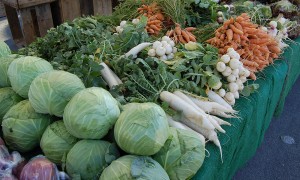Posted by
Dr Bill Dean on May 24, 2015 in
bladder,
bladder pain,
chronic prostatitis,
fibromyalgia,
GERD,
IBS,
IC,
Interstiial cystitis,
Uncategorized,
vulvodynia |
0 comments It’s one thing to watch what you eat when you have the IC bladder pain syndrome(interstitial cystitis, vulvodynia, chronic prostatitis, IBS, GERD, fibromyalgia) but what you use as foods and how to buy them economically is another aspect of food preparation
It’s one thing to watch what you eat when you have the IC bladder pain syndrome(interstitial cystitis, vulvodynia, chronic prostatitis, IBS, GERD, fibromyalgia) but what you use as foods and how to buy them economically is another aspect of food preparation
With our busy lives, these temptations seem so much easier and affordable than cooking. Between our never-ending to-do lists, demanding jobs, children’s busy schedules, and perhaps less-than-stellar skills in the kitchen, cooking seems to slide down to the bottom of our list of priorities Unfortunately, we’ve now raised several generations of Americans who don’t know how to cook. And it’s killing us.
The food industry wants us to believe that cooking is difficult, time-consuming, inconvenient, and expensive. They’ve brainwashed us to believe that we “deserve a break today.”
You Don’t Need to Spend Half Your Paycheck to Eat Healthy
Even if time and money aren’t on your side, you can still eat healthy This is one of the most common misconceptions I hear I understand the challenges of trying to eat well with limited financial resources, limited time, or both But you don’t have to be rich or retired to eat well and take care of yourself
These days, I’m even busier, but I haven’t forgotten how to incorporate simple but effective strategies for eating good-quality, healthy food that’s prepared with little money and time
Likewise, I’ve met numerous folks with limited finances and time who nonetheless have access to good quality food Trust me, they don’t search out arcane ingredients or shop at trendy food boutiques Instead, they realize the immediate and long-term value of eating healthy and employ some savvy strategies to make their food budget work harder
Dispelling 3 “Healthy Eating on a Budget” Myths
I mentioned earlier that the food industry spends billions of dollars each year and has become incredibly crafty at convincing us that sugary, processed foods are a real value Let’s look at three of their myths and consider the truth about eating healthy
- Healthy food costs more. Research shows eating healthy, whole, real food isn’t necessarily more expensive than eating junk food, fast food, processed foods, or convenience foods In fact, the top four things purchased in supermarkets are ALL drugs: sugar, caffeine, nicotine, and alcohol! If you give up those “drugs,” your grocery bill will go down dramatically
- Healthy food is hard to find. You don’t have to shop in a gourmet food store, a health-food store, a farmer’s market, or eat only organic to eat well There are plenty of healthy foods right in your local supermarket. Just shop around the outside aisles of the store Another convenient way to access healthy food is online
- Healthy food takes lots of time to prepare You don’t have to spend hours cooking complex meals to eat well. Good quality, fresh food is easy to prepare and enjoy once you learn how
Ten Ideas to Begin Organizing Your Shopping and Money Saving
n so, there are ways of making choices that work within our resources. Here are 10 ideas based on how I save time and money AND create better health for myself.
- Keep a journal This might be the most eye-opening experience you will encounter to better budget your time, resources, and money For just one week, keep a journal of every cent you spend and how you spend every hour of the day Think of money as your life energy It represents your time in physical form. How do you want to spend this life energy?
- Choose three things that give you more money. For example, don’t buy that $2.00 coffee every day — that’s $730.00 a year! Likewise, you might find yourself gravitating to the vending machine daily You can put that money towards much better use
- Buy in season You will almost always get fresher produce, probably locally grown, for less money, when it is in season
- Learn the Dirty Dozen Not everyone has the budget to buy 100 percent organic, but the more you can, the more you will avoid GMOs and have better health To learn the most and least pesticide-ridden foods try this link goo.gl/t9TZdh
- Frequent discount grocery stores Search out cheaper sources of fresh, whole foods in your neighborhood My top choices are stores like Trader Joe’s and shopping clubs like Costco or Sam’s Club, where you can buy vegetables, olive oil, fruits, nuts, canned beans, sardines, and salmon at much lower prices than regular supermarkets or other retail chains A problem is the degree of bulk purchasing that has to be done but if most of these items are nonperishable and can be easily stored it can be a definite savings
- Think about joining your local food co-op Co-ops are community-based organizations that support local farmers and businesses and allow you to order foods and products in bulk at just slightly over the wholesale price. This takes a bit of advance planning but will save you money.
- Join a community-supported agriculture program Buy direct and cut out the middleman. We get organic, mostly seasonal, local vegetables delivered to our house for $55 a week, or a little more than $10 a person for a family of four per week. We don’t always get to choose what we get, but it makes us more creative cooks This volume may not work for some folks but in the right situation it can pay off
- Keep some basics on hand Develop a repertoire of cheap, easy-to-prepare meals. Have the ingredients available at home at all times so you don’t get stuck eating food that doesn’t make you feel well or help you create the health you want. This takes planning but is well worth it.
- Create a “potluck club” Have coworkers share the responsibility of making lunch for the group once a week or every two weeks. No more buying lunch out, and you get to eat real, whole fresh food and only have to cook a few times a month. Or create a “supper club” with a group of friends; rather than go out to dinner, once a week or once a month rotate dinner parties at one another’s homes. You will build community and health at the same time.
- Order staples online Why pay retail for healthy kitchen staples like turmeric, coconut oil, and almond butter? My new favorite online store is Amazon.com It has great deals for supplements and even grocery items that would be common in the market even when shipping is include
- Cooking for 48hours Preparing meals like kitchari so that you have fresh vegetables for 48hours with rice, barley, or quinoa to go with the split mung dal can be helpful Recently I have been adding kale to the split mung dal mixture to give it some chewiness and variety
In part courtesy of Mark Hyman MD blog






 It’s one thing to watch what you eat when you have the IC bladder pain syndrome(interstitial cystitis, vulvodynia, chronic prostatitis, IBS, GERD, fibromyalgia) but what you use as foods and how to buy them economically is another aspect of food preparation
It’s one thing to watch what you eat when you have the IC bladder pain syndrome(interstitial cystitis, vulvodynia, chronic prostatitis, IBS, GERD, fibromyalgia) but what you use as foods and how to buy them economically is another aspect of food preparation
Leave a Reply